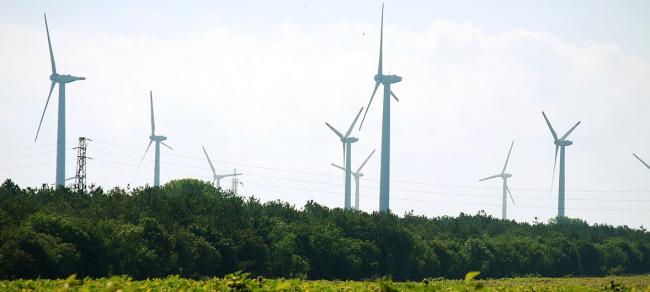
Jobs in the green economy will ‘more than offset’ losses in traditional industry by 2030 – UN labour agency
New York, May 15 (IBNS): Action to combat climate change could create millions of new job opportunities and “more than” offset losses in traditional industries, the UN labour agency said on Monday.
The International Labour Organization (ILO) made the announcement at the launch of its annual flagship report on the state of the global job market.
Its forecast that 24 million new posts “will be created globally by 2030”, contains the caveat that “the right policies to promote a greener economy” must also be in place for this to happen, along with better social safety nets for workers.
The ILO report predicts that the transition to a green economy will also lead to the loss of six million jobs in industries that are heavily reliant on carbon-based production.
ILO Deputy Director-General, Deborah Greenfield, insisted in a statement that the green economy “can enable millions more people to overcome poverty and deliver improved livelihoods for this and future generations”.
But she warned that jobs also “rely heavily on a healthy environment”, something that is at risk from rising global temperatures which ILO believes will lead to a two per cent global loss in hours worked by 2030.
“Most sectors” of the economy will benefit - out of 163 analysed in total, according to ILO - but 14 will face losses of more than 10,000 jobs worldwide.
Two sectors, namely petroleum extraction and refining, are set to see job losses of one million or more.
In line with the historic Paris Agreement on climate change accord of December 2015, UN Member States pledged to respond to destructive climate change, by keeping temperature rises to below two degrees Celsius, above pre-industrial levels.
This should lead to more new jobs in the sustainable energy sector through public policy shifts - as well as private sector development - ranging from the promotion of electric cars to energy-efficient buildings, according to the ILO report.
It indicates that the regional winners from investment in energy use and production will be Asia and the Pacific, with 14 million jobs created, the Americas (three million) and Europe (two million).
In contrast, negative job growth is forecast in the Middle East (minus 0.48 per cent) and Africa (minus 0.04 per cent) if the reliance of these regions continues, respectively, on fossil fuels and mining.
Catherine Saget, lead author of the report, underlined the need to help low and middle-income countries offset the potential “short-term” employment losses in countries attempting to make the transition to environmentally sustainable economies.
Social dialogue between employers, workers and Member States is also crucial, according to Saget, adding that it has played a “key role in reconciling social and economic objectives with environmental concerns” in some situations.
Measures that could help workers include cash transfers, better social insurance and even limits on fossil fuel use, according to the ILO report, which states that this policy mix “would lead to faster economic growth, stronger employment creation, fairer income distribution and lower greenhouse gas emissions”.
The report’s other findings include a call for governments to take urgent action to train their workforces so that they have the right skills to make the transition to a greener economy possible.
World Bank/ Ivelina Taushanova
Support Our Journalism
We cannot do without you.. your contribution supports unbiased journalism
IBNS is not driven by any ism- not wokeism, not racism, not skewed secularism, not hyper right-wing or left liberal ideals, nor by any hardline religious beliefs or hyper nationalism. We want to serve you good old objective news, as they are. We do not judge or preach. We let people decide for themselves. We only try to present factual and well-sourced news.







